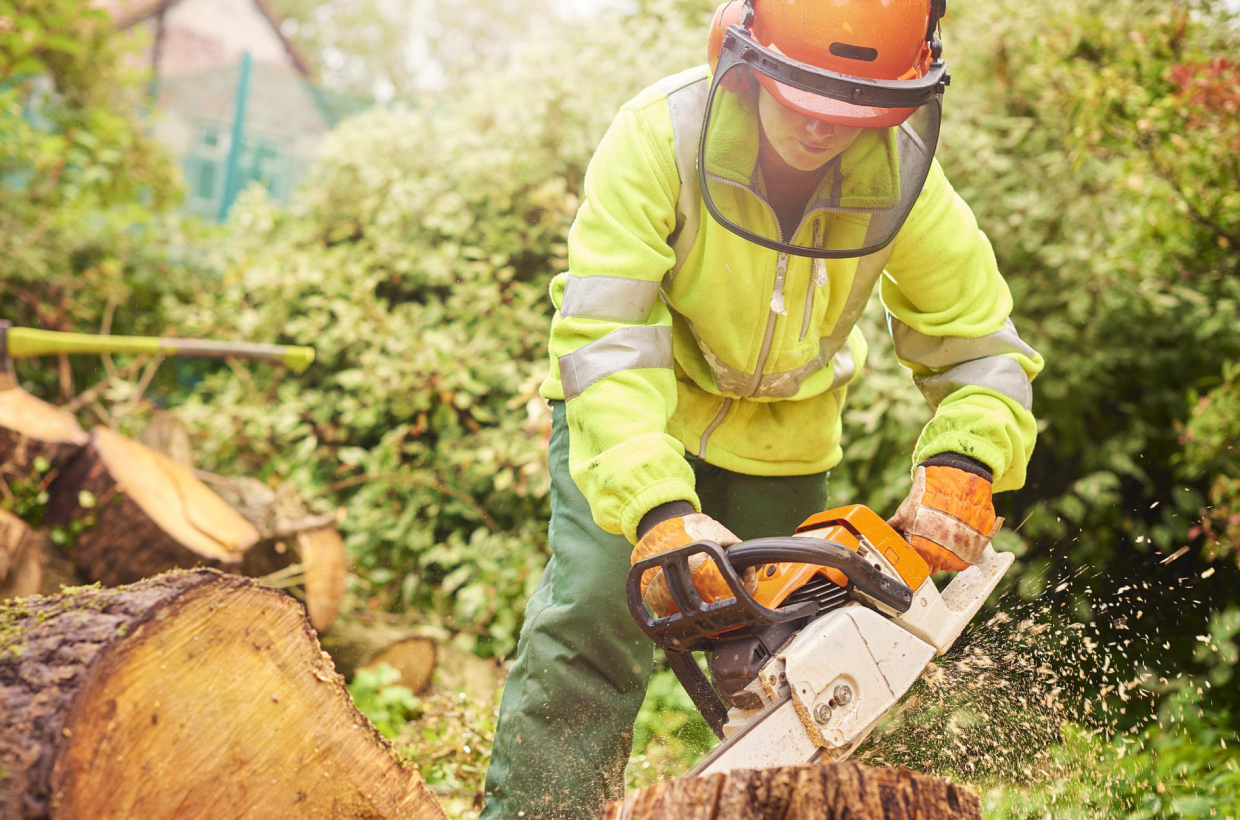
Senior Ecologists lead a team of researchers, developing biodiversity plans, and handling management tasks such as budget planning.
Ecologists study the relationships between animals, plants, people and their physical surroundings. They look at how animals and plants inhabit a particular environment, and report on the likely impact of any proposed works.
They may work for universities, government agencies or non-profit environmental organisations. They may also work for private industry.
You'll need:
specialist knowledge in ecology and the environment
to deliver high quality technical work and written reports
to work both independently and as part of a team, often in remote locations
good verbal and written communication skills with colleagues, clients and other stakeholders
knowledge of biodiversity legislation and policy issues
good organisational, planning and time management skills
good IT and project management skills
experience of mentoring and providing technical training to ecology staff
You may apply for Chartered Ecologist (CEcol) or Chartered Environmentalist (CEnv) status.
Depending on their job, Senior Ecologists may spend some of their time travelling to sites or meetings, so a driving licence is useful.
Around 35-40 hours per week, depending on the job.
Consultants work long hours to meet deadlines. The work is often seasonal and undertaken on a contract basis, so the spring and summer months may be busier, particularly if field survey work is required.
Design and conduct ecological surveys of plants and animals
Report findings to colleagues, clients and other stakeholders
Design and deliver ecological mitigation programmes and projects
Develop computer models of ecosystems, to formulate predictions and research questions
Support in the production of proposals and bids
Liaise with and advise colleagues, project teams, clients, and other stakeholders
Provide specialist ecology input to developing strategic plans and policy documents
Supervise and manage the ecologist team
Liaise with government and regulators at all levels
Keep up to date with new environmental policies and legislation
Ecologists may also be involved with science communication, which includes writing about the environment for newspapers, magazines and journals, and making films, radio and television programmes.
You may work indoors, assessing data or working on specimens in a laboratory. For many, office-based work is a significant part of the job. Others spend most of their time working outdoors, in all weather conditions. You’ll be provided with protective clothing (PPE), tools and equipment required to undertake the job.
Training is an essential part of any job, giving you the skills and knowledge you need to do your job safely and correctly. It also helps to strengthen your current skill set and prepares you for the next stage in your career.
Apprenticeships help you build the experience and skills that employers want to see. No matter what stage you’re at, they’ll help set you up for a bright future. There are lots of ways to get involved.
You could work in a range of organisations like local authorities, conservation organisations, government or scientific bodies.
Continuing Professional Development courses are available through membership organisations such as Chartered Institute of Ecology and Environmental Management (CIEEM) and the Institute of Environmental Management & Assessment (IEMA). Through these organisations, you could apply for Chartership status (becoming CEnv or CEcol) or become a Registered Environmental Practitioner (REnvP).
Once you've gained enough experience you could set up your own consultancy, working either on your own offering specialist expertise, or together with other ecologists offering a broader-based consultancy service.
Senior Ecologist will usually work in one of the following industries. Click below to find out more about possible career paths.
Want to help protect our natural environment? Passionate about helping others understand the beauty around them? Then a career in environmental conservation may be for you.
People working in environmental conservation help look after the landscapes, habitats and species of the UK and Ireland’s hugely varied rural, costal, marine and urban areas. As well as offering spaces for rest and relaxation, our landscapes and habitats are important ways we can all find out more about our environment. They help people learn about sustainable land use, biodiversity and climate change, inspiring us to work together to solve the challenges our environment faces by reinstating woodlands, conserving habitats and protecting our coastline.
Environmental conservation offers a host of exciting career options for people who want to protect the environment and help other people enjoy it in a sustainable way. Whether you want to work in your local park, a nature reserve, our beautiful countryside or work on conservation around the world, if you’re interested in science, like working outdoors or want to help find answers to the big environmental questions we face, this diverse industry may the place for you.
Over 60,000 people are employed in conservation and environmental roles in the UK, with a further 190,000 engaged as volunteers
Between 2000 and 2019, the amount of time volunteers contributed to conservation activities in the UK increased by 61%
The UK Government has committed to protect 30% of the UK’s land by 2030 to support biodiversity
The report 'Ireland’s Environment: An Integrated Assessment 2020' outlines the state of Ireland’s environment at a strategic and national level, and planned responses to current and emerging environmental issues
These courses are perfect if you are starting out on your career but they are also great for people already in jobs who want to improve their skills.
To find out more about qualification levels in England please visit Regulated Qualifications Framework (RQF) for England and Northern Ireland or Framework for Higher Education Qualifications for England, Wales and Northern Ireland (FHEQ) .
To find out more about qualification levels in Northern Ireland please visit Regulated Qualifications Framework (RQF) for England and Northern Ireland or Framework for Higher Education Qualifications for England, Wales and Northern Ireland (FHEQ).
To find out more about qualification levels in the Republic of Ireland, please visit National Framework of Qualifications for Ireland (NFQIE)
To find out more about qualification levels in Scotland please visit Scottish Credit and Qualifications Framework (SCQF).
To find out more about qualification levels in Wales please visit Credit and Qualifications Framework for Wales (CQFW) or Framework for Higher Education Qualifications for England, Wales and Northern Ireland (FHEQ).
| Title | Level |
|---|
These courses are perfect if you are starting out on your career but they are also great for people already in jobs who want to improve their skills.
Whether you’re just starting out in the workplace, want to upskill or are considering changing direction, Apprenticeships are a fantastic way to build your career. Apprenticeships combine work with on-the-job training, so if you want to earn as you learn, there’s an apprenticeship out there for you – you can even start an apprenticeship if you already have a degree.
Work, earn and learn – no matter where you are in your career, an apprenticeship can set you up for a bright future.
Let’s get started!
Want to take on an apprentice? Employers start here.
An apprenticeship is a unique blend of work experience and study to help build the skills and knowledge you need for your career. Apprentices are employees – they have a contract, are paid and get the same benefits as everyone else. But the difference between an apprenticeship and a normal job is that apprentices are regularly released from work for training. Sometimes that’s a day a week, sometimes it’s for a longer block – it all depends on the job and the apprenticeship.
Apprentices work for all kinds of people at all kinds of stages in their lives. Most apprentices fall into one of three categories:
Previously restricted to school leavers and young people, apprenticeships are now a dynamic way of retraining people of all ages - there’s no upper age limit. The minimum age to become an apprentice is 16 and candidates can’t be in full-time education.
Apprenticeships offer a unique combination of paid work and study. They’re an exciting option for anyone who wants to gain experience, upskill or change career while working.
They offer a chance to work, learn and earn:


Interested in becoming an apprentice? Search for current opportunities and apply here.
Find your apprenticeship
You can also check vacancies on employer websites or get in touch with your local careers service.
What’s it like to work, earn and learn? Find out what apprentice life is really like.
Explore apprenticeship stories
Institute of Environmental Management & Assessment (IEMA)
Find out more
Discover Green Jobs for Nature (CIEEM)
Find out more
The Chartered Institute of Ecology and Environmental Management (CIEEM)
Find out more
Northern Ireland Environment Agency (NIEA)
Find out more
Natural Resources Wales
Find out more
Natural England
Find out more
Countryside Management Association
Find out more
Historic England
Find out more
National Trust
Find out more
Scottish Environment Protection Agency (SEPA)
Find out more
Historic Environment Scotland (HES)
Find out more
National Trust for Scotland (NTS)
Find out more
NatureScot
Find out more
Royal Society for the Protection of Birds (RSPB)
Find out more
National Parks UK
Find out more
The Wildlife Trusts
Find out more
Thinking about your finances is important when you're looking at courses and training - different types of funding support is available depending on what type of course you're interested in and where you are located. We recommend you contact the training provider for more information on course costs and financing, but here are some links to connect you to support available:
Skills Hub Scotland is an online skill sharing marketplace creating new opportunities to learn and share skills. Wherever you are located - if you have a skill to share, or a skill to learn, Skills Hub Scotland can help.
Initially founded as a response to the Scottish Government’s CivTech 5 programme in 2020 and aiming to offer a platform for those in rural or remote locations, Skills Hub Scotland has been developed into an important sectoral resource. If you have a skill to share with others or are a training provider, list your workshop or course (all skills from all sectors are welcome). If you are a learner, use Skills Hub Scotland to search for and book a course!
STEM is an approach to learning and development that incorporates the areas of science, technology, engineering and mathematics. Learning in STEM connects to Education for Sustainable Development/Learning for Sustainability and the Sustainable Development Goals – this helps learners to understand that STEM plays a vital role in finding solutions to real world issues or challenges such as protecting biodiversity and tackling climate change. There are multiple pathways into a land-based STEM career including apprenticeships, further and higher education. This means that a career in STEM is open to everyone!
STEM Learning is the largest provider of STEM education and careers support in the UK. Their STEM Ambassadors programme sees volunteers representing a vast range of STEM-related jobs work with young people to bring STEM subjects alive through real life experiences. They help to open the doors to a world of opportunities and possibilities which come from pursuing STEM subjects and careers. To become a STEM Ambassador, you can register via the STEM Learning website: https://www.stem.org.uk/stem-ambassadors/join-stem-ambassador-programme
Lantra have worked in collaboration with STEM Ambassadors in Scotland to create two specific UK-wide Ambassadors schemes - Forestry and Aquaculture. Through these schemes, we want to make sure that those working in forestry and aquaculture have the support materials they need to take part in STEM activities. To find out more and register for the schemes, please follow the links below:
Smart Futures helps young people in Ireland discover the STEM subjects and careers that might be right for them. Co-ordinated and managed by Science Foundation Ireland, their programme allows young people to connect with people that are working in STEM, the organisations they’re working in and what their interests and skills are.
Why not take a look at the Industries Explorer as an introduction to the different areas you could work in.
If we can support you with any specific information, please click the button below to get in touch.